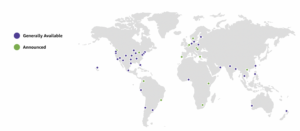Overview of AWS’s Latest Policy Change
AWS has announced a significant policy change affecting the resale and distribution of Reserved Instances (RIs) and Savings Plans (SPs), effective June 1, 2025. Under this new policy, AWS will prohibit the sharing of RIs and SPs across multiple end customers within a single AWS Organization. This move aims to ensure that these commitment-based pricing products are used by individual customers rather than being distributed through resellers or Managed Service Providers (MSPs).
Recap on the history of Savings Plans & Ris
- 2009 – AWS introduced Reserved Instances (RIs) for long-term cost savings.
- 2019 – Launched Savings Plans as a flexible RI alternative.
- 2020 – Expanded Savings Plans to Lambda & Fargate, added queued purchases, and introduced EC2 Instance Savings Plans.
- 2024 – Restricted EDP customers from reselling discounted RIs.
What is changing in June 2025?
Historically, many MSPs and resellers have leveraged a centralized purchasing model for RIs and SPs, allowing them to aggregate customer usage, secure volume-based discounts, and distribute savings to end customers while retaining a portion as profit. However, starting June 1, 2025, AWS will require that all RIs and SPs be purchased and applied directly within the end customer’s account.
This policy does not affect organizations that purchase RIs and SPs at the root level of their AWS Organization for internal use among linked or member accounts. However, it does effectively end third-party resellers’ ability to pass on savings to multiple customers under a single umbrella account.
Who Will Be Impacted?

Resellers and Managed Service Providers (MSPs)
MSPs and AWS resellers who rely on centralized purchasing will face the most significant disruption. Many of these businesses have structured their revenue models around committing to large savings plan purchases and distributing them to customers while taking on the associated financial risk.
The sudden shift in policy could leave resellers exposed to billions of dollars in existing commitments that they can no longer pass on to their customers. Without AWS intervention or alternative strategies, this could lead to financial instability for some providers.
End Customers Using Reseller Services
Organizations that have been benefiting from discounted AWS pricing through MSPs will now need to make their own direct commitments. This may result in higher cloud costs for businesses that do not adjust their savings plan strategies in time. Companies currently relying on MSPs for cost optimization should begin evaluating their options to transition smoothly before the deadline.
Why Is AWS Implementing This Change?
AWS has not provided a detailed explanation, but there are several likely reasons behind this policy shift:
1- Control Over Discounting Practices:
Resellers have amassed significant negotiating power by committing large amounts of AWS spend. By cutting out resellers, AWS gains tighter control over pricing and discount structures.
2-Minimizing Competitive Risk
Managed Service Providers (MSPs) and large resellers often purchase massive amounts of AWS Reserved Instances (RIs) and Savings Plans (SPs) on behalf of multiple customers. This gives them significant purchasing power and influence.
- Because of their high spending, these MSPs can negotiate better discounts with AWS than an individual company could.
- If AWS gives them deep discounts, other cloud providers (like Google Cloud or Azure) might try to offer even better deals to win their business.
- With such leverage, an MSP could move workloads to another cloud provider if they find a more attractive offer, reducing AWS’s customer lock-in.
By forcing each end customer to buy commitments directly, AWS removes this power from resellers, making it harder for them to use bulk purchasing as a bargaining tool against AWS.
3-Revenue Optimization
Before this policy change, resellers could buy commitments in bulk and distribute savings efficiently across their customers. This allowed them to:
- Maximize utilization of RIs/SPs by spreading commitments across multiple clients, ensuring there was little waste.
- Pass on savings while still making a profit, keeping cloud costs lower for customers.
With the new policy:
- Each customer must purchase their own commitments, which may lead to lower utilization (e.g., a company might overcommit or undercommit, leaving some savings unused).
- AWS benefits because any unused RIs/SPs convert to On-Demand pricing, which is more expensive than properly managed commitments.
- Additionally, some customers might lack the expertise to optimize their commitments as efficiently as resellers did, leading to higher overall cloud spending.
In short, AWS removes a key optimization strategy that resellers used, potentially driving higher revenue from inefficient commitment management by individual customers.
What Should AWS Customers Do?
For End Customers
If your business currently benefits from an MSP-managed RI or SP pool, you should start working with your provider to assess your cost exposure. Some recommended actions include:
- Reviewing your current savings plans and commitment structures.
- Identifying opportunities to purchase RIs or SPs directly.
- Exploring alternative cost optimization tools.
For Resellers and MSPs
Resellers and MSPs must quickly pivot their business models to remain viable. Potential strategies include:
- Transitioning to a FinOps advisory model, guiding customers on their direct commitment purchases.
- Leveraging automation and analytics tools to help clients optimize their commitments.
- Working with AWS to explore possible accommodations or exceptions.
The Holori Advantage in Navigating AWS Changes
Holori provides a comprehensive FinOps platform that helps businesses manage cloud commitments effectively. Holori is not a reseller and is not affected by these changes. With Holori, AWS customers can:
- Optimize Reserved Instances and Savings Plans: Identify the best commitment strategies to maximize savings.
- Track and Manage AWS Costs: Gain clear visibility into RI and SP utilization across accounts.
- Automate Cost Allocation: Allocate commitments efficiently to the right department or project.
As AWS enforces these changes, organizations will need to become more proactive in cost management. Holori’s tools can help businesses transition smoothly while continuing to achieve maximum savings on AWS.
Conclusion
AWS’s policy change marks a pivotal shift in how cloud savings are managed and distributed. While this move may create financial challenges for resellers, it presents an opportunity for end customers to take greater control over their AWS spending strategies. Companies should begin preparing for this transition now to avoid unnecessary cost increases and disruptions.
For businesses seeking to navigate these changes efficiently, Holori’s FinOps platform offers the insights and automation needed to optimize cloud costs effectively.
Start planning your AWS commitment strategy today to stay ahead of these policy changes: https://app.holori.com/






